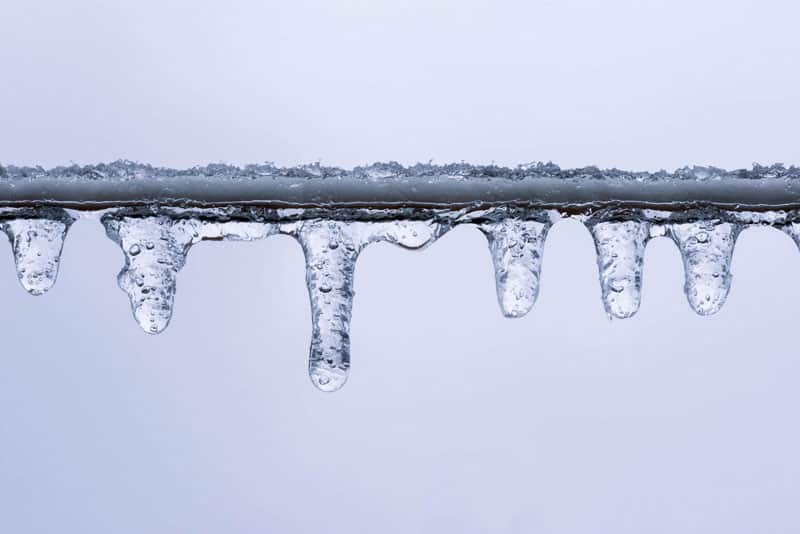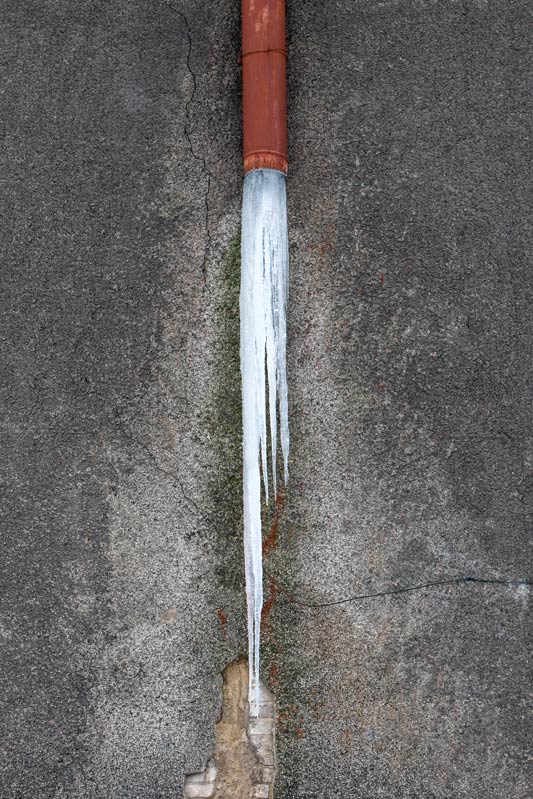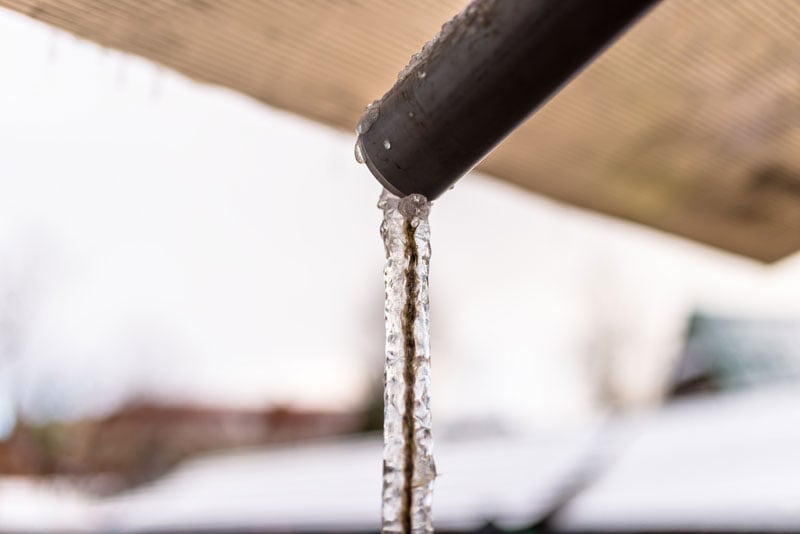How to Prevent Pipes from Freezing

As winter rages on in Kansas City, one of the most critical challenges homeowners face is preventing pipes from freezing. At Quality Plumbing, we understand that frozen pipes can lead to devastating consequences, including costly repairs and extensive water damage.
Quality Plumbing is here to help you protect your plumbing system during the coldest months of the year. We do more than tell you how to prevent pipes from freezing; we offer comprehensive plumbing services to restore your plumbing. Contact us today for expert repairs, installations, and inspections.
[Related: Common Problems in Plumbing]
Why Do Pipes Freeze?
When temperatures plummet, the risk of frozen pipes increases dramatically. Water expands as it freezes, creating immense pressure within pipes that can cause immense pressure within pipes that can cause them to burst. The resulting damage can be catastrophic, often leading to flooding, structural damage, and repairs costing thousands of dollars.
Prevention is always more cost-effective than emergency repairs. By implementing proper preventive measures, you can protect your home from the devastating effects of frozen pipes and avoid the stress of dealing with winter plumbing emergencies.
How to Prevent Pipes from Freezing: Indoor Prevention Methods
Maintaining Consistent Indoor Temperature
One of the most effective ways to prevent pipes from freezing is to maintain a steady indoor temperature. Keep your thermostat set to at least 55°F, even when you’re away from home. While it might be tempting to lower the temperature to save on heating costs, the potential damage from frozen pipes far outweighs any energy savings.
Insulating Vulnerable Pipes
Proper pipe insulation is crucial in preventing freezing. Focus on pipes in unheated areas such as:
- Basements
- Crawl spaces
- Attics
- Exterior walls
Use foam pipe insulation or heat tape to protect vulnerable pipes. Heat tape can be particularly effective as it provides active warming to pipes in extremely cold conditions. When installing heat tape, always follow manufacturer instructions carefully to ensure safe operation.
Allowing Faucets to Drip
During severe cold spells, allowing faucets to drop can prevent pipes from freezing. Moving water is less likely to freeze than standing water. Focus on faucets connected to pipes along exterior walls or in unheated spaces. A drip rate of about five drops per minute is usually sufficient.
How to Prevent Pipes from Freezing: Outdoor Prevention Methods

Protecting your outdoor plumbing is equally important when learning how to prevent pipes from freezing. Follow the following essential steps:
- Disconnect and drain all outdoor hoses
- Close interior shut-off valves to outdoor spigots
- Install insulated covers on exterior spigots
- Seal any foundation cracks or holes that could let cold air reach pipes
Despite our best efforts, plumbing emergencies in the winter can still occur even if you know how to prevent pipes from freezing. Although it is rare to have these problems if you implement these methods, it is best to be prepared. Save Quality Plumbing’s contact information to get fast and effective plumbing services. You can call 816-472-4994 for our Missouri location or 913-894-8994 for our Kansas location.
How to Prevent Pipes from Freezing: Additional Protective Measures
Opening Cabinet Doors
During cold spells, open cabinet doors under sinks, especially those along exterior walls. This allows warmer air to circulate the plumbing and helps prevent freezing.
Garage Protection
Keep garage doors closed if there are water supply lines in the garage. This helps maintain a warmer temperature around these vulnerable pipes.
Insulation Improvements
Adding extra insulation to attics, crawl spaces, and other areas where pipes are located can provide additional protection against freezing. Consider these insulation options:
- Fiberglass batts
- Spray foam insulation
- Reflective barriers
Know Your Pipe Locations
Understanding where your pipes are located helps you identify vulnerable areas and take appropriate preventive measures. Pay close attention to:
- Pipes along exterior walls
- Plumbing in unheated spaces
- Water supply lines in garages or crawl spaces
[Related: What to Do if Your Pipes Are Frozen]
Contact Quality Plumbing for Expert Plumbing Services

Preventing pipes from freezing requires a proactive approach and attention to detail. By following these guidelines and maintaining regular plumbing maintenance, you can significantly reduce the risk of frozen pipes and the associated damage they can cause.
Take action now to protect your plumbing system. If you need assistance with winterizing your plumbing or have concerns about frozen pipes, contact Quality Plumbing today. Our experienced team is ready to help ensure your plumbing system stays safe and functional throughout the winter months.

